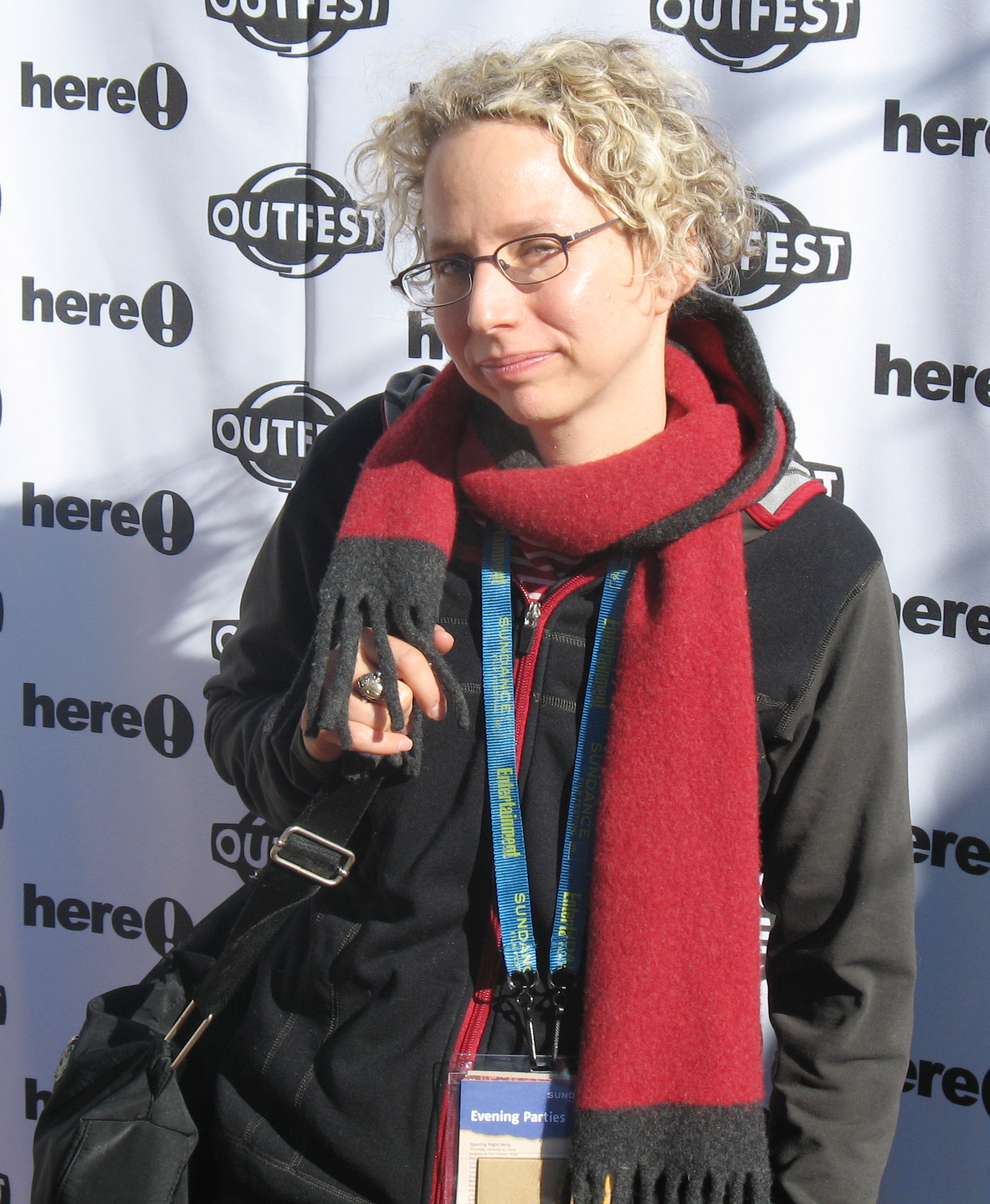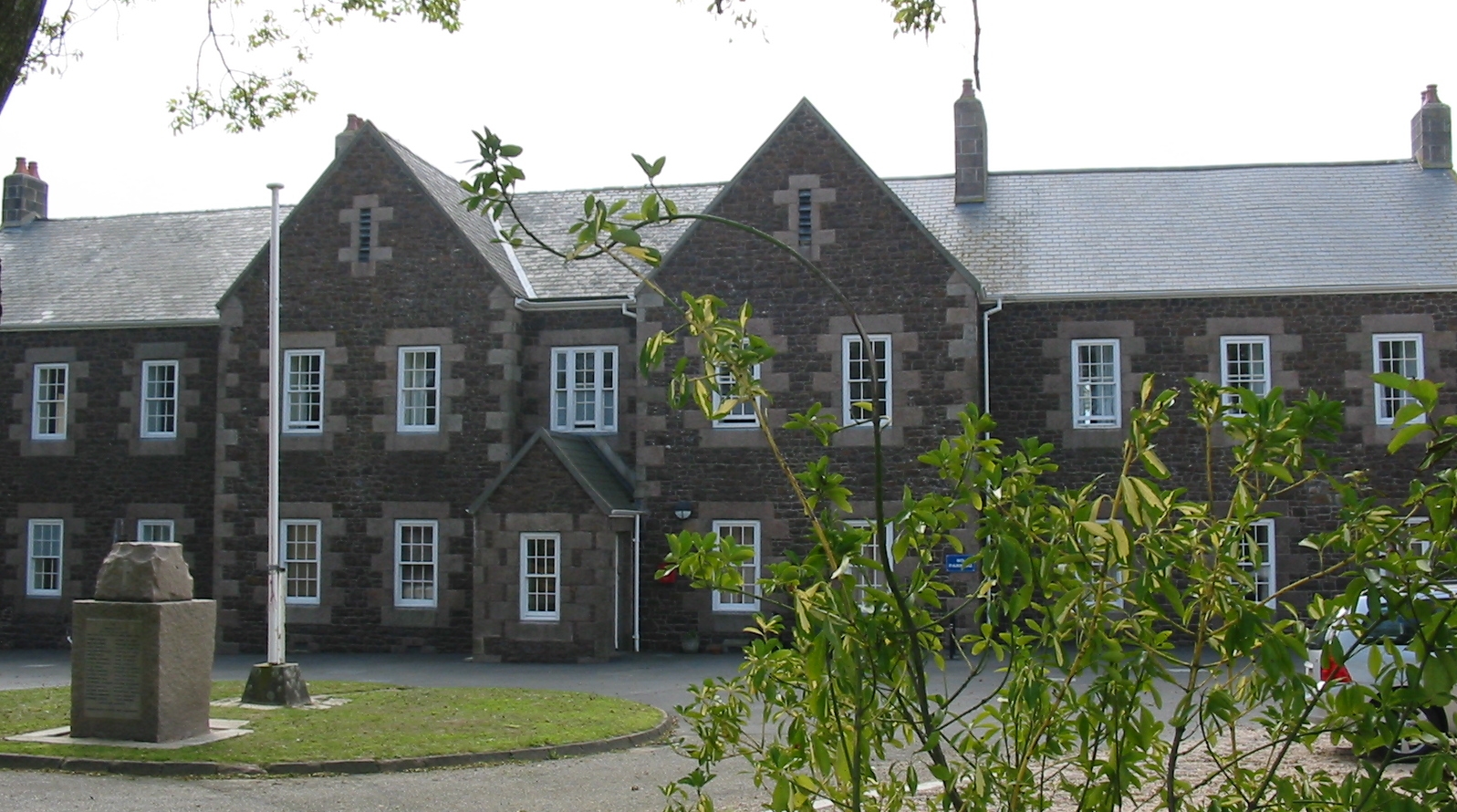|
Nigel Finch
Nigel Lucius Graeme Finch (1 August 1949 – 14 February 1995) was an English film director and filmmaker whose career influenced the growth of British gay cinema. Biography Nigel Finch was born in Tenterden, Kent, the son of Graham and Tibby Finch, and raised in Bromley, south east London. He studied art history at the University of Sussex. Finch began working as co-editor for the BBC television documentary series ''Arena'' in the early 1970s. He produced and directed many notable programs including ''My Way'' (1978), and ''The Private Life of the Ford Cortina'' (1982). He rose to prominence with the documentary ''Chelsea Hotel'' (1981), which profiled the famed New York hotel and its legacy of famous gay guests, including Oscar Wilde, Tennessee Williams, William S. Burroughs, Quentin Crisp and Andy Warhol. His documentary subjects include artist Robert Mapplethorpe (1988), filmmaker Kenneth Anger (1991), and artist Louise Bourgeois (1994). Finch went on to direct films such ... [...More Info...] [...Related Items...] OR: [Wikipedia] [Google] [Baidu] |
Tenterden
Tenterden is a town in the borough of Ashford in Kent, England. It stands on the edge of the remnant forest the Weald, overlooking the valley of the River Rother. It was a member of the Cinque Ports Confederation. Its riverside today is not navigable to large vessels and its status as a wool manufacturing centre has been lost. Tenterden has several voluntary organisations, some of which are listed below, a large conservation area and seven large or very old public houses within its area. It has long distance walking and cycling routes within its boundaries. History The town's name is derived from the Old English ''Tenetwaradenn'', meaning a ''denn'' or swine-pasture for the men of Thanet. The first record of dwellings in Tenterden can be found in a charter which mentions that it, as 'Heronden', began to grow from the 14th century around the strong local wool industry. Unlike other such centres in the Weald it had the advantage of access to the sea. Much of what is now ... [...More Info...] [...Related Items...] OR: [Wikipedia] [Google] [Baidu] |
The Lost Language Of Cranes (film)
''The Lost Language of Cranes'' is a 1991 British made-for-television drama film directed by Nigel Finch. It was adapted for television by Sean Mathias, based on the 1986 novel of the same name by David Leavitt. The film was produced by the BBC for their ''Screen Two'' series, and aired on 9 February 1992. It stars Brian Cox, Eileen Atkins, Angus Macfadyen, Corey Parker, Cathy Tyson, John Schlesinger, René Auberjonois, Ben Daniels and Nigel Whitmey. Cox was nominated for a British Academy Television Award for Best Actor. Synopsis Philip Benjamin is a 20-something middle-class Londoner who works in publishing. Unbeknownst to his parents, Philip is gay and he decides to "come out" to them. His parents are taken aback by the news and his mother, Rose, says that she will need time to come to terms with it. However, the revelation has a far greater impact on his father, Owen, who at first seems accepting of his son's revelation but later begins to cry. Although he has been marrie ... [...More Info...] [...Related Items...] OR: [Wikipedia] [Google] [Baidu] |
Buddy Holly
Charles Hardin Holley (September 7, 1936 – February 3, 1959), known as Buddy Holly, was an American singer and songwriter who was a central and pioneering figure of mid-1950s rock and roll. He was born to a musical family in Lubbock, Texas during the Great Depression, and learned to play guitar and sing alongside his siblings. His style was influenced by gospel music, country music, and rhythm and blues acts, which he performed in Lubbock with his friends from high school. He made his first appearance on local television in 1952, and the following year he formed the group "Buddy and Bob" with his friend Bob Montgomery. In 1955, after opening for Elvis Presley, he decided to pursue a career in music. He opened for Presley three times that year; his band's style shifted from country and western to entirely rock and roll. In October that year, when he opened for Bill Haley & His Comets, he was spotted by Nashville scout Eddie Crandall, who helped him get a contract with Dec ... [...More Info...] [...Related Items...] OR: [Wikipedia] [Google] [Baidu] |
Paris Is Burning (film)
''Paris Is Burning'' is a 1990 documentary film directed by Jennie Livingston. Filmed in the mid-to-late 1980s, it chronicles the ball culture of New York City and the African-American, Latino, gay, and transgender communities involved in it. Critics consider the film to be an invaluable documentary of the end of the "Golden Age" of New York City drag balls, and a thoughtful exploration of race, class, gender, and sexuality in America. In 2016, the film was selected for preservation in the United States National Film Registry by the Library of Congress as being "culturally, historically, or aesthetically significant". The title takes its name from the Paris Is Burning ball held annually by artist Paris Dupree who appears in the film. Content The film explores the elaborately-structured ball competitions in which contestants, adhering to a very specific "category" or theme, must "walk", much like a fashion model parades a runway. Contestants are judged on criteria including th ... [...More Info...] [...Related Items...] OR: [Wikipedia] [Google] [Baidu] |
The Continuing Adventures Of The Rolling Stones
''The'' () is a grammatical article in English, denoting persons or things that are already or about to be mentioned, under discussion, implied or otherwise presumed familiar to listeners, readers, or speakers. It is the definite article in English. ''The'' is the most frequently used word in the English language; studies and analyses of texts have found it to account for seven percent of all printed English-language words. It is derived from gendered articles in Old English which combined in Middle English and now has a single form used with nouns of any gender. The word can be used with both singular and plural nouns, and with a noun that starts with any letter. This is different from many other languages, which have different forms of the definite article for different genders or numbers. Pronunciation In most dialects, "the" is pronounced as (with the voiced dental fricative followed by a schwa) when followed by a consonant sound, and as (homophone of the archaic pron ... [...More Info...] [...Related Items...] OR: [Wikipedia] [Google] [Baidu] |
Bergerac (TV Series)
''Bergerac'' is a British crime drama television series. Set in Jersey, it ran from 18 October 1981 to 26 December 1991. Produced by the BBC in association with the Australian Seven Network, and first screened on BBC1, it stars John Nettles as the title character Jim Bergerac, who is initially a detective sergeant in Le Bureau des Étrangers ("The Foreigners' Office", a fictional department dealing with non-Jersey residents), within the States of Jersey Police, but later leaves the force and becomes a private investigator. Westward Studios executive producer Brian Constantine said the Bergerac reboot was in the final stages of development, possibly airing 2024. Background The series ran from 1981 to 1991. It was created by producer Robert Banks Stewart after an earlier detective series, '' Shoestring,'' starring Trevor Eve, came to an abrupt end. Like ''Shoestring'', the series begins with a man returning to work after a particularly bad period in his life: Eddie Shoestring fro ... [...More Info...] [...Related Items...] OR: [Wikipedia] [Google] [Baidu] |
Screen Two
''Screen Two'' was a British television anthology drama series, produced by the BBC and transmitted on BBC2 from 1985 to 1998 (not to be confused with a run of films shown on BBC2 under the billing ''Screen 2'' between April 1977 and March 1978). Following the demise of the BBC's ''Play for Today'', which ran from 1970 to 1984, producer Kenith Trodd was asked to formulate a new series of one-off television dramas. However, while ''Play for Today''s style had been a largely studio-based form of theatre on television, the new series was shot entirely on film. This was an attempt by the BBC to repeat the success of Channel 4's television films, many of which had been released in cinemas. From 1989 to 1998, a companion series, ''Screen One'', was broadcast on the more mainstream BBC1. After appearing more sporadically in the mid-1990s, ''Screen Two'' came to an end as the BBC moved its attentions away from single dramas and concentrated production on series and serials instead. T ... [...More Info...] [...Related Items...] OR: [Wikipedia] [Google] [Baidu] |
Omnibus (UK TV Series)
''Omnibus'' is an arts-based British documentary series, broadcast mainly on BBC 1 in the United Kingdom. The programme was the successor to the arts-based series ''Monitor''. It ran from 1967 until 2003, usually being transmitted on Sunday evenings. During its 35-year history, the programme won 12 British Academy of Film and Television Arts (BAFTA) awards. Among the series' best remembered documentaries are: *''Song of Summer'' (1968) biographical film by Ken Russell about Frederick Delius and Eric Fenby *''Cracked Actor'' (1975), a profile of David Bowie during the peak of his cocaine addiction *''Fear and Loathing on the Road to Hollywood'' (1978), follows American Gonzo Journalist Hunter S. Thompson and British artist Ralph Steadman on a trip to Hollywood during the development of a film based on Thompson's life and work. *''Rene Magritte'' (1979), a graduate film by David Wheatley; *'' Leonard Bernstein's West Side Story'' – a documentary about a 1984 studio recording o ... [...More Info...] [...Related Items...] OR: [Wikipedia] [Google] [Baidu] |
Fear And Loathing On The Road To Hollywood
''Fear and Loathing on the Road to Hollywood'', also known as ''Fear and Loathing in Gonzovision'', is a documentary film produced by BBC '' Omnibus'' in 1978 on the subject of Hunter S. Thompson, directed by Nigel Finch. The film pairs Thompson with illustrator Ralph Steadman, as they travel to Hollywood via Death Valley and Barstow from Las Vegas.''The Joke's Over'', R.Steadman, London : 2006, Heinemann It contains interviews with Thompson and Steadman, as well as some short excerpts from some of his work. Availability The film is featured in The Criterion Collection edition of ''Fear and Loathing in Las Vegas ''Fear and Loathing in Las Vegas: A Savage Journey to the Heart of the American Dream'' is a 1971 novel in the gonzo journalism style by Hunter S. Thompson. The book is a ''roman à clef'', rooted in autobiographical incidents. The story follo ...''. Notes and references * ''Fear and Loathing in Las Vegas: Criterion Collection'', disc 2 * 1978 films Work ... [...More Info...] [...Related Items...] OR: [Wikipedia] [Google] [Baidu] |
Stonewall Riots
The Stonewall riots (also known as the Stonewall uprising, Stonewall rebellion, or simply Stonewall) were a series of spontaneous protests by members of the gay community in response to a police raid that began in the early morning hours of June 28, 1969, at the Stonewall Inn in the Greenwich Village neighborhood of Lower Manhattan in New York City. Patrons of the Stonewall, other Village lesbian and gay bars, and neighborhood street people fought back when the police became violent. The riots are widely considered the watershed event that transformed the gay liberation movement and the twentieth-century fight for LGBT rights in the United States.; As was common for American gay bars at the time, the Stonewall Inn was owned by the Mafia. While police raids on gay bars were routine in the 1960s, officers quickly lost control of the situation at the Stonewall Inn on June 28, 1969. Tensions between New York City Police and gay residents of Greenwich Village erupted into ... [...More Info...] [...Related Items...] OR: [Wikipedia] [Google] [Baidu] |
Docudrama
Docudrama (or documentary drama) is a genre of television and film, which features dramatized re-enactments of actual events. It is described as a hybrid of documentary and drama and "a fact-based representation of real event". Docudramas typically strive to adhere to known historical facts, while allowing some degree of dramatic license in peripheral details, such as when there are gaps in the historical record. Dialogue may, or may not, include the actual words of real-life people, as recorded in historical documents. Docudrama producers sometimes choose to film their reconstructed events in the actual locations in which the historical events occurred. A docudrama, in which historical fidelity is the keynote, is generally distinguished from a film merely " based on true events", a term which implies a greater degree of dramatic license; and from the concept of "historical drama", a broader category which may also encompass entirely fictionalized action taking place in histor ... [...More Info...] [...Related Items...] OR: [Wikipedia] [Google] [Baidu] |
Stonewall (1995 Film)
''Stonewall'' is a 1995 British-American List of historical films, historical comedy-drama film directed by Nigel Finch, his final film before his AIDS-related death shortly after filming ended. Inspired by the memoir of the same title by gay historian Martin Duberman, ''Stonewall'' is a fictionalized account of the weeks leading up to the Stonewall riots, a seminal event in the modern American gay rights movement. The film stars Guillermo Díaz (actor), Guillermo Díaz, Frederick Weller, Brendan Corbalis, and Duane Boutte. While the film is a work of fiction, Finch makes the unusual directorial choice of including Documentary film, documentary-style interview footage with several people who were at the Stonewall Inn during the uprising. Finch also intersperses lip synch numbers performed by the actors throughout the film to function as something of a Greek chorus. Plot Matty Dean, a young gay man, arrives in New York City and heads for Greenwich Village. He falls in with crossdr ... [...More Info...] [...Related Items...] OR: [Wikipedia] [Google] [Baidu] |



.png)

